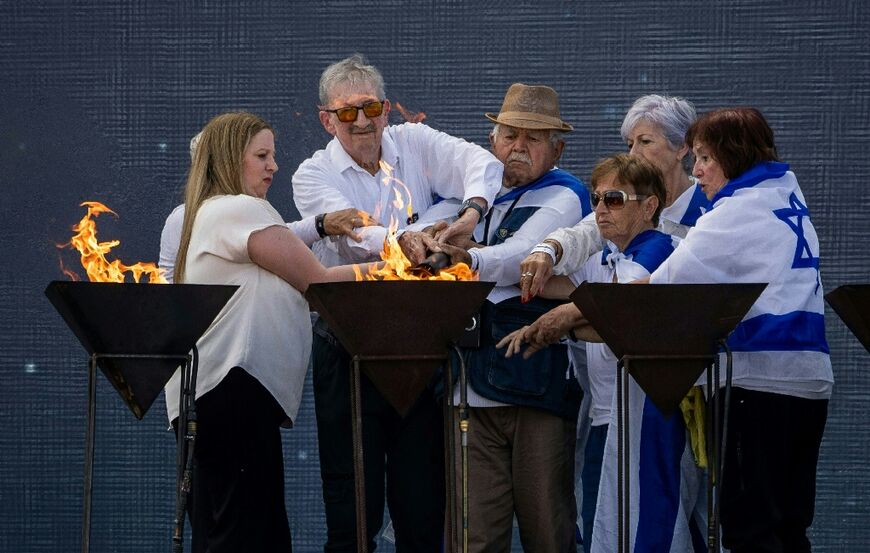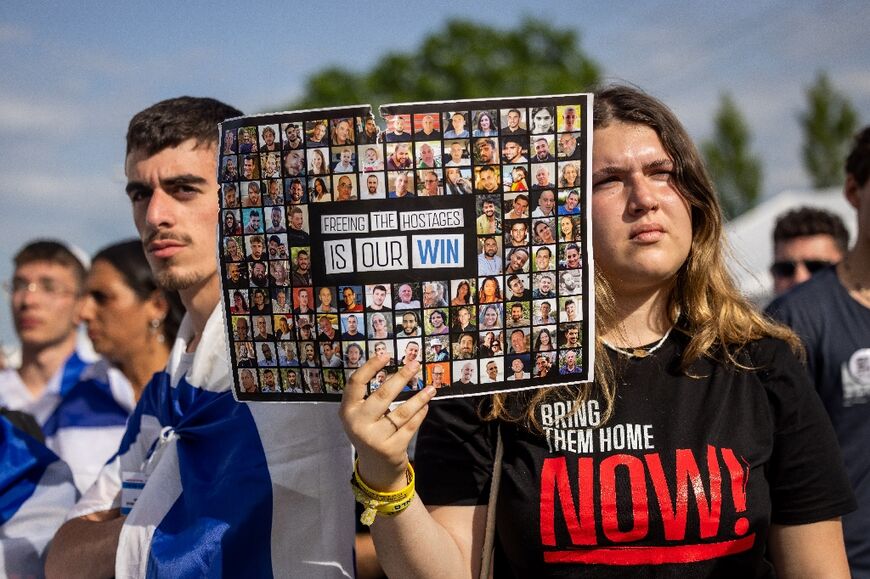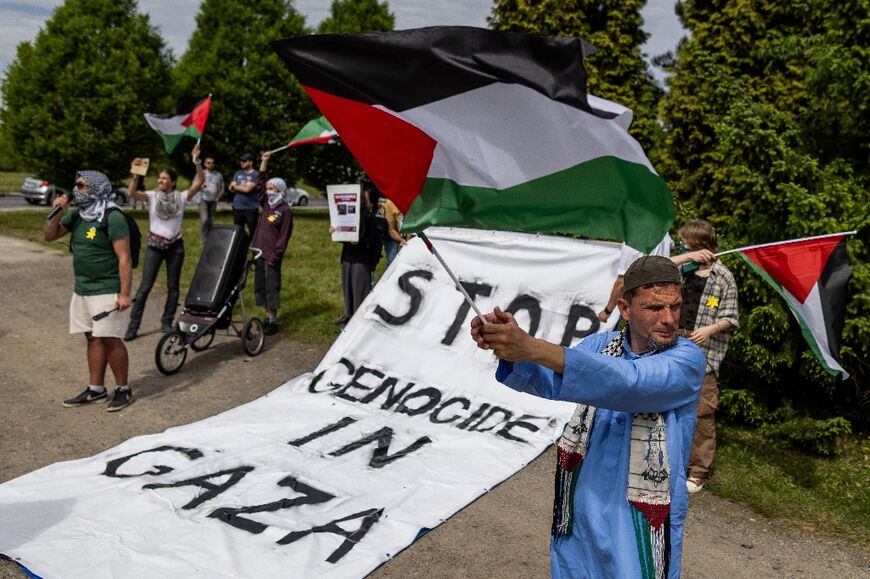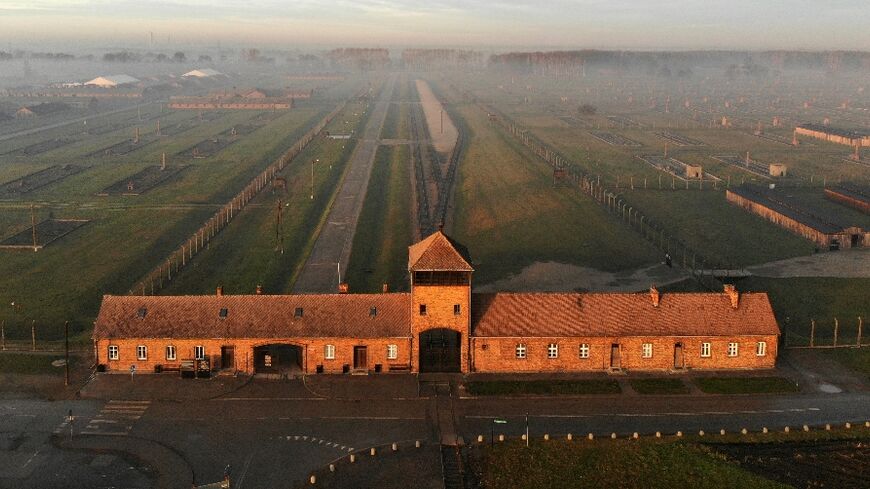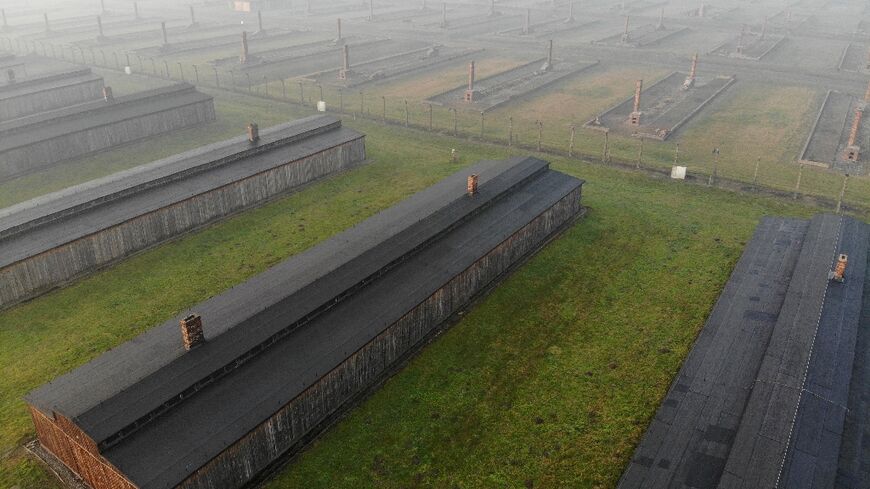Former Oct 7 hostages make freedom call from Auschwitz

Freed Gaza hostages Gabriela Leimberg and her brother Fernando Marman visited Auschwitz for the first time this week and said they want just one thing: freedom for all the others.
On Monday, a delegation from Israel -- relatives of those still held, survivors of the October 7 militant attacks and bereaved parents -- joined the annual March of the Living at the Auschwitz-Birkenau complex of former Nazi death camps in Poland.
All wore traditional yellow ribbons in solidarity with those still held hostage in the Gaza Strip, where Israel and the Islamist Palestinian Hamas movement have been at war for seven months.
"For us it is still October 7, and will be until all of the hostages come home," Leimberg told AFP outside the forbidding gate to Auschwitz.
On that day, Gaza-based Hamas militants attacked Israeli communities near the coastal territory, killing more than 1,170 people, mostly civilians, according to an AFP tally of Israeli official figures.
In response, Israel vowed to eradicate Hamas and launched a military offensive that has killed at least 34,904 people in Gaza, mostly women and children, according to the Hamas-run health ministry there.
Mediated talks on a possible Gaza ceasefire and hostage release are under way in Cairo. If they succeed, it will be just the second pause in a conflict that has alarmed the world.
Some marchers in Poland said the government of Israeli Prime Minister Benjamin Netanyahu should agree a ceasefire that will see the remaining hostages come home.
Leimberg was freed along with her sister in a week-long truce in November that saw more than 100 hostages released, among them 80 Israelis in exchange for 240 Palestinian prisoners held in Israeli jails.
Marman, her brother, was one of two hostages rescued in a deadly Israeli Gaza raid.
Of the more than 250 hostages seized on October 7, Israel believes that 128 remain in Gaza, including 36 that officials say are dead.
- 'Bring Them Home NOW!' -
On the day that sparked the war, Leimberg was at Kibbutz Nir Yitzhak near Gaza with four other relatives, including her brother, when Hamas militants attacked.
They rushed to the house's secure room and tried vainly to block the door with a chair. They were abducted and taken into Gaza.
Now free, Leimberg refuses to compare the Hamas attack to the Holocaust, unlike some prominent figures inside Israel.
She says she wants an agreement as soon as possible so the remaining hostages can also be free.
"Eighty years ago Jews were scattered all over the world, but today we have a state," she told AFP.
"On October 7 we were abandoned. People murdered us, and the state did not protect us.
"I want this (ceasefire) deal tomorrow, as quickly as possible," Leimberg said, underlining the message stamped on her T-shirt -- "Bring Them Home NOW!"
Daniel Louz, now 90, survived the Holocaust in France, and this week for the first time was in the place where the Nazis exterminated many of his relatives.
On October 7, he was in the Beeri kibbutz and cheated death a second time when Hamas attacked. His neighbours were murdered, but his house was not attacked.
"I believe the souls of my loved ones who died at Auschwitz protected me so I could tell their story," he said, unable to hold back the tears.
At the Birkenau ceremony, Louz was asked to light a torch in memory of those killed in the Holocaust, and he dedicated it to the victims of October 7.
"What happened in the war was traumatic, but on October 7 I feared for my life," he told AFP.
Louz and other October 7 survivors were applauded by the crowd at an otherwise silent march.
Along the five-kilometre (three-mile) route of the march a small group of demonstrators waved Palestinian flags, accusing Israel of "genocide" in Gaza.
To them, the marchers had a simple response: "The Jewish people are alive."


